“Why is it that a knife, something I use to cut my chicken, is being used by children to kill other children?” asks Jhemar Jonas, pleading with his hands. The audience of roughly 50 people, spread out across the oak-panelled room, are hooked on his every word. “Can someone tell me why it’s normal for me to hear gunshots on my estate?” he asks, driving home his point with back-to-back questions. They are of course rhetorical. No one has any answers.
I have mentored Jhemar for four years. In November 2017, three years after I first met him, his older brother Michael was chased across Betts Park, in Penge, south London, by a group of youths, and stabbed to death. Nobody has been found guilty for his murder. When I first heard about Michael’s passing, I put on my running trainers, sprinted to the top of the hill in Brockwell Park, just south of Brixton, and sat on a bench overlooking the city’s jagged skyline, my eyes flooded with tears. I understand now that Jhemar and I first met all those years ago, when he was an excitable 12-year-old, bursting with ideas about the world around him, so that I could be there to listen to him when he needed it most.
Jhemar is now sat to my immediate left. He’s taller than me, and stocky, at 16 years old. It’s January 2018, and we’ve been invited to Westminster by the Labour Member of Parliament for Croydon, Sarah Jones, who chairs the All-Party Parliamentary Group on knife crime. We’re there to discuss the extent to which social media and drill music is playing a role in London’s youth violence epidemic. Our roundtable consists of suited managers of social media companies like Facebook and YouTube, and a handful of politicians. Then there’s Jhemar, myself and Demetri to my right.
Short and athletically built, Demetri Addison is a couple of years older than Jhemar. We first met in 2016 during his interview for a mentoring programme I ran at his sixth-form college. “Why do you want to study at university?” I asked him. His stare hardened and he clasped his hands together. “I want to understand why boys in my community feel the need to carry a knife,” he replied, holding my gaze.
When Jhemar finishes talking to the committee room, Demetri is chosen to speak.
“You don’t cure a disease by treating its symptoms,” he states, referring indirectly to the conversation’s fixation upon violent music. “You have to go deeper and treat it at the source. Or, you prevent it from happening in the first place,” he continues, receiving nods of approval from around the room.
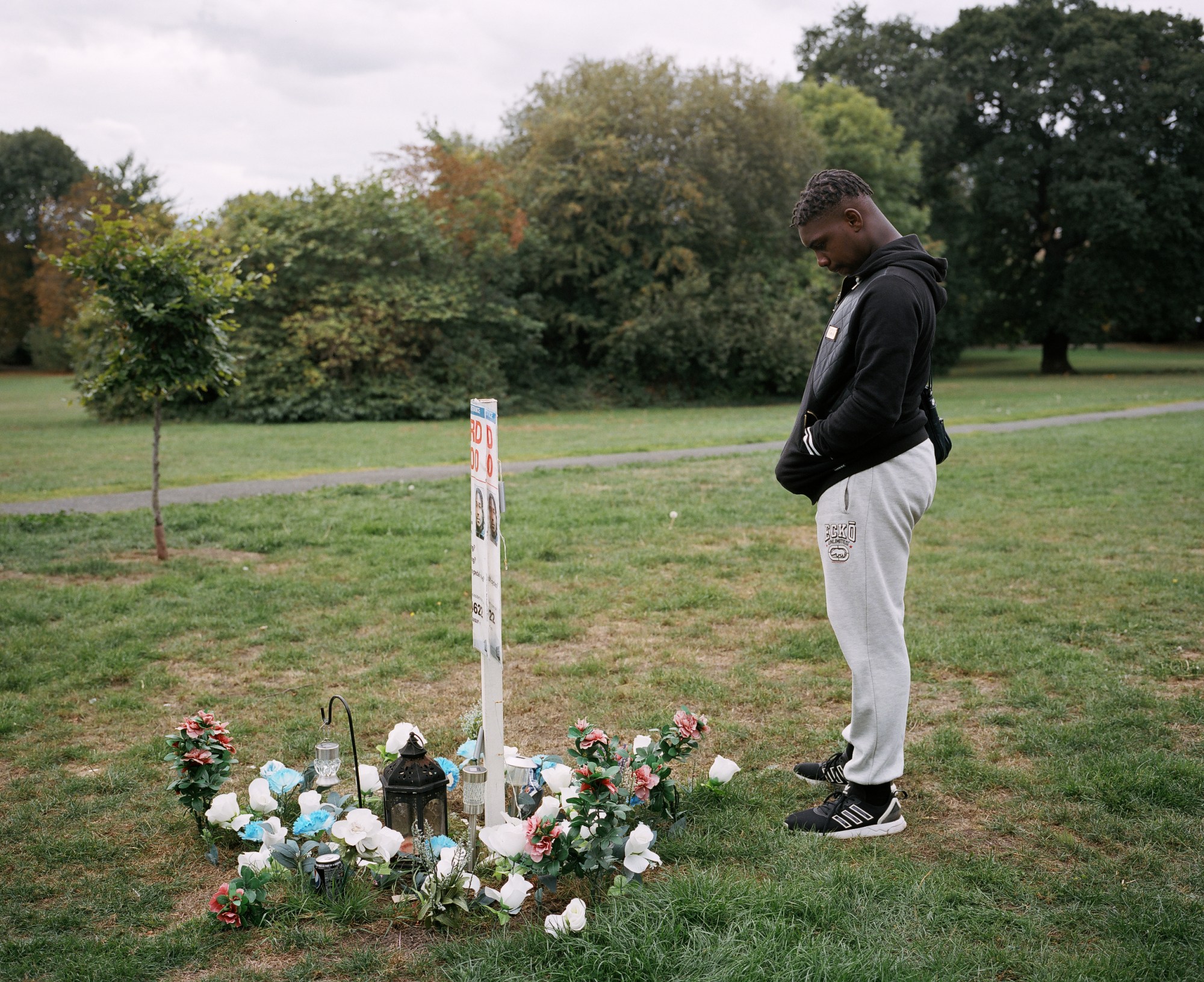
“In places like Glasgow, and some cities in America, there is a refusal to accept violence as inevitable,” Sarah Jones tells me, when we speak over the phone during her lunch break eight months later. During the summer of 2018, the trend of brutal stabbings taking place in London among young people has persisted (in 2017, 39 children and young people were stabbed to death across the UK; 20 took place in the capital). In August, reflecting a heightened rate unseen in over a decade, the London Metropolitan Police launched its 100th murder investigation of the year. “This government seems to accept violence as inevitable, something that’s just always going to happen to people from certain backgrounds and communities,” Jones continues, in her personable south London accent. I hear the beeps of a supermarket checkout in the background while she talks. “People are worth saving, and the task is getting everyone to realise that,” she adds.
Since she was elected, Jones and other campaigners have been persuasively calling at the highest level of British political power for a ‘public health approach’ towards violence. This practical philosophy treats violence as a disease – one that spreads through and corrupts communities – and therefore condones a diversity of solutions to stifle its structural root causes. The ethos of the approach, which worked to drastically reduce knife-crime in Glasgow in the decade following 2005, when the city was dubbed ‘murder capital of Europe’, is at the heart of London Mayor Sadiq Khan’s recent plans to establish a Violence Reduction Unit.
I ask Jones about the public health approach. What is it? “First, it stops seeing violence as a criminal issue,” she replies. Secondly, “you inoculate against future violence: working early-on with primary education, starting conversations about things like what it means to be a man with young boys. Thirdly, it’s about cutting violence so it doesn’t spread. You get young people out of the negative situation they are in, and you have people on the ground working with them closely, who are trusted and have lived experience themselves, whether in hospitals or on the street.”
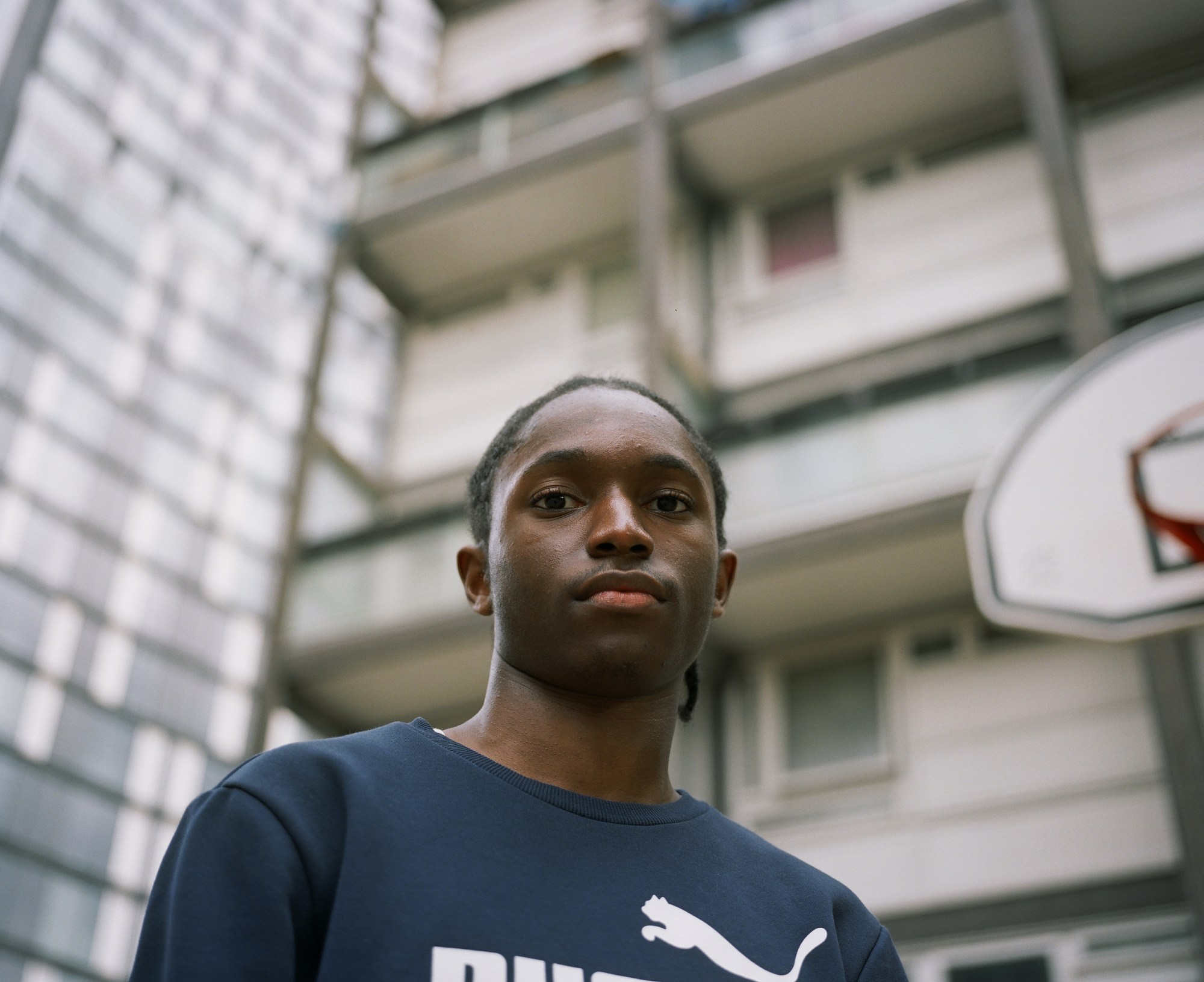
Youth worker and rapper Franklyn Addo is precisely one of those people. “If I am talking to a young person who has been implicated in acts of violence, or kids on my estate, or friends of my little brother, I’m empathetic,” he says, when I meet him outside Homerton Hospital in Hackney, where he was born, raised and now works. The autumnal sky is grey, like his hoodie, and there is a calming control in his voice. “I don’t ask imposing or personal questions, I focus on their wellbeing and show humanity. Because then the young person is more likely to let you into their life.”
Franklyn is a Team Leader for Redthread, a charity which places youth workers in hospitals across the UK. When a young victim of violence is admitted under their watch, Redthread call it a ‘teachable moment’: when someone is out of their comfort zone and therefore most likely to respond constructively to social support. The young person is supported to problem-solve on the events which led them to becoming a victim of violence, and come up with practical routes for moving forward with their life.
“Young people need to be afforded time and empathy by an appropriate adult who can look out for them with no agenda or judgment. That was the deciding factor for the fate of a lot of my peers when I was growing up. We can all think of one person who changed the trajectory of our lives, of our friends’ lives. So that’s what I try and do at work, be there for someone at a time of crisis, in a way that opens a relationship thereafter. Progress isn’t linear. Young people slip up, and that’s cool, as long as they know someone is still there for them.”
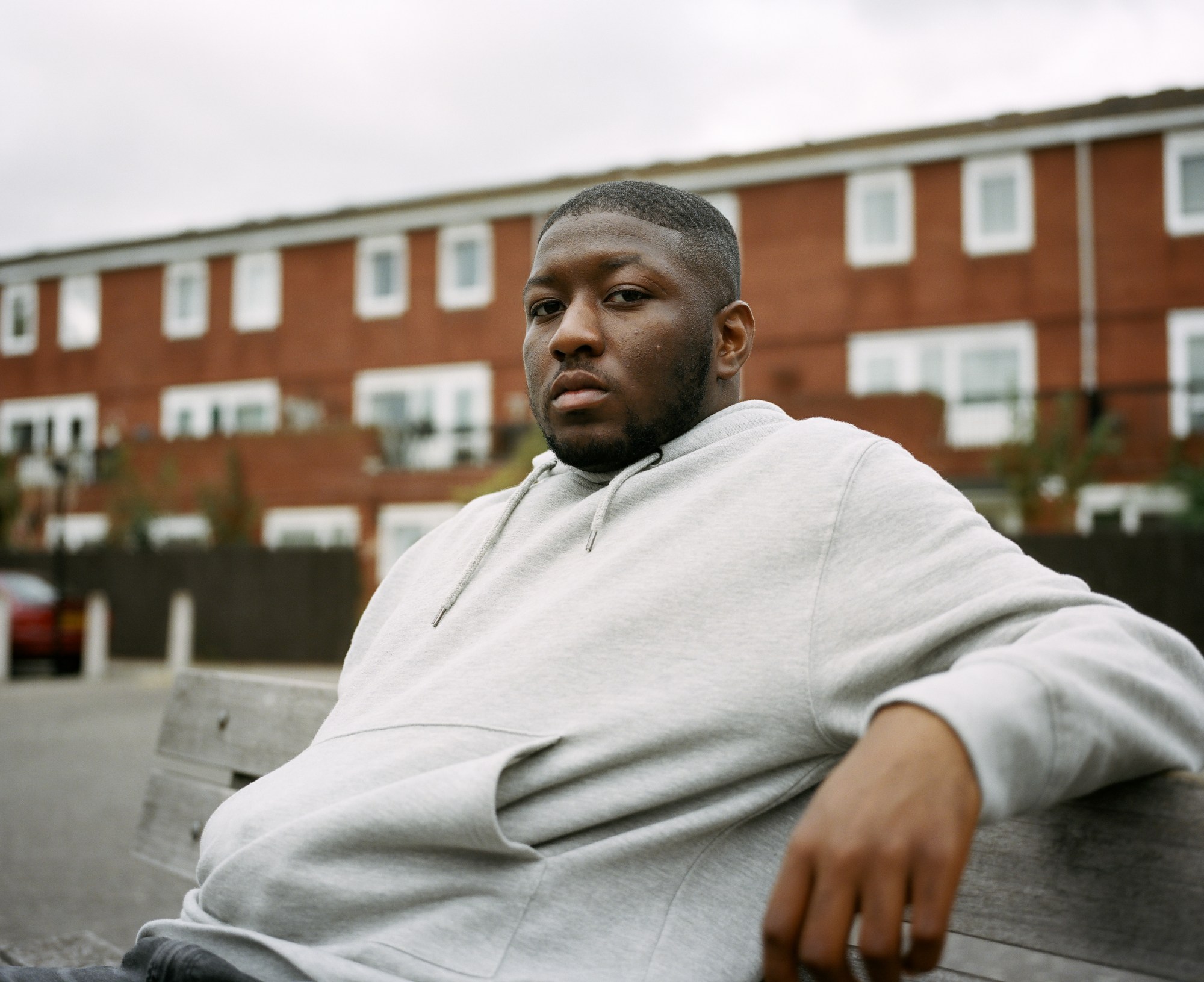
Last winter, at rush hour, I was walking across the busy, regenerated Elephant & Castle roundabout in Southwark, a historically impoverished pocket of the city that’s now full of new-build towers for well-heeled professionals. Suddenly, a young man metres in front of me pulled out a kershaw knife and lunged at another man near him. His target whipped open a flick-knife, and the two began swiping at one another, locked in a deadly duel. People continued to walk right by, consumed by their smartphones and inner-thoughts. I yelled at the pair to stop, and they looked up self-consciously before running off into the night. A few people had stopped in awe. Others looked at me, frowning, as if I’d done something strange before continuing on their evening paths. On my walk home I felt completely alone and numb.
Demetri has lived on Draper Estate his whole life: a social housing block just off the roundabout, which sits in the shadows of Strata, the iconic skyscraper with three wind turbines at its head. “There is a lack of trust in our community now,” he tells me when we meet near his home. “When I look out my bedroom window, I see people driving their fancy cars in and out of Strata’s car park. It makes you hungry for money. And if you want to make big money quickly, the easiest way of doing that here is illegitimately. It’s like a dark capitalism. You’re told at school if you work hard and get your grades you’ll succeed in life, but for a lot of people that is hard to believe. Even going to university involves getting into debt. Youngers see older people around them making money from shotting and it seems better to do that than stay in school. So the easy option becomes making short-term gains on the roads, and that lifestyle leads to violence.”
Having spent time since we first met two years ago mentoring younger boys at risk of exclusion at his school, while also studying for his A-Levels, Demetri now holds a place at Goldsmiths University, starting next year, to study Sociology. “I don’t feel like people are innately bad. I feel like they act as a result of the situation they are in, and to understand the situation people are in, you have to understand society. That’s why I need to study sociology.” I ask him what motivates boys to start carrying a knife. “Anyone who already carries a knife will be able to justify it to you. It’s a rational thing in their world because they think that not having that knife puts their life at risk. That is reinforced by the belief that there is nothing else out there to protect them. Nobody here trusts the police,” he says, shaking his head.
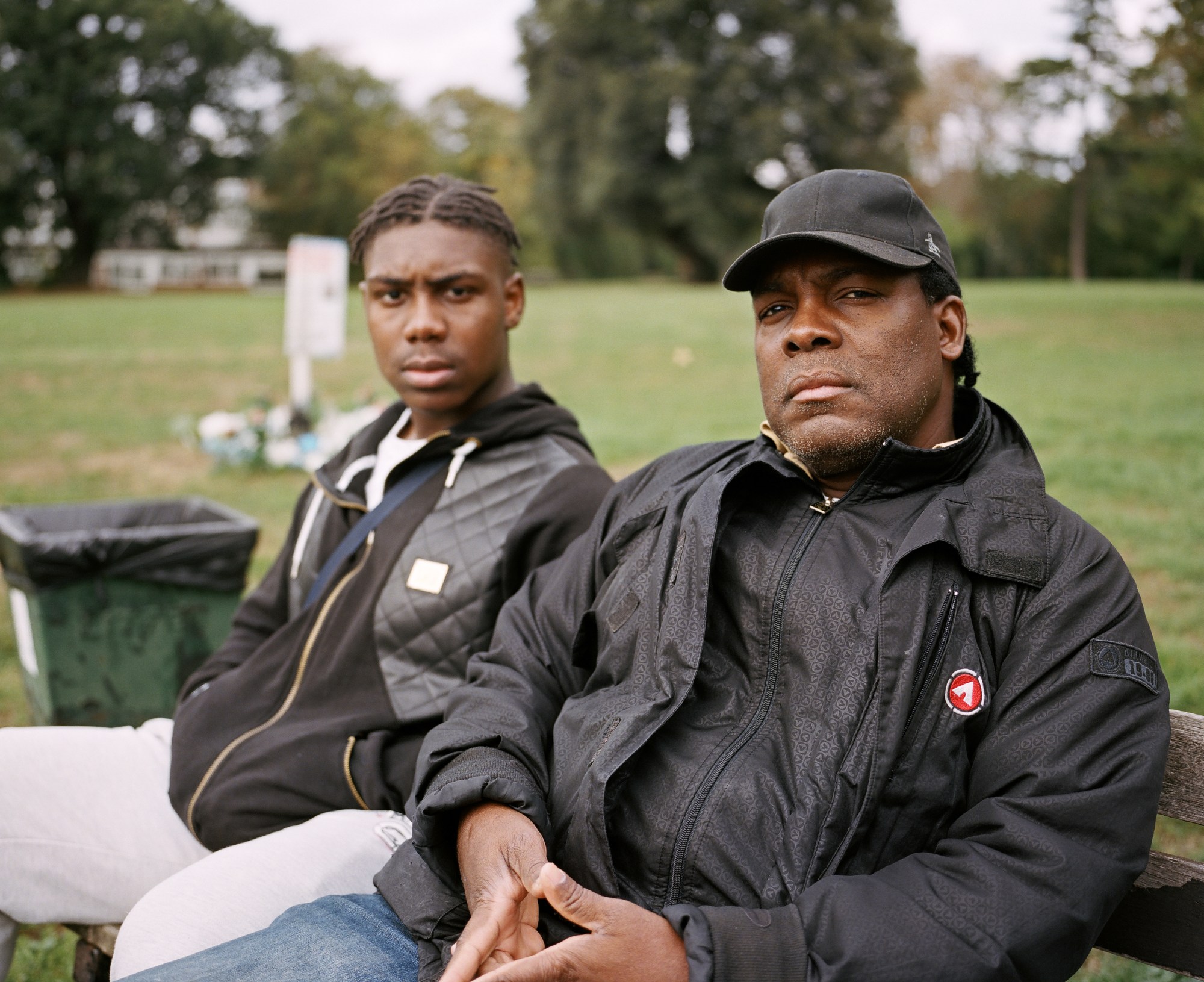
So how does a teenager like him remain resilient to negative forces at play? “For me it’s about thinking long term” he replies. “There have been times when I’ve been asked to shot. But eventually you’re gonna get bagged or stabbed. It’s not worth it.” And from his experience, what is the solution for supporting socially disaffected teenagers? “Young people need someone who they can trust and who can guide them in the right direction. Most youngers will trust olders on their block, in their community. So if those olders are saying to stick to education, they will be more likely to do it.”
A makeshift shrine now stands in the middle of Betts Park, on the same patch of grass where medics attempted to bring Michael Jonas’s body back to life last November. It consists of flowers, a couple of lanterns, and a white wooden post hammered into the ground. A laminated paper sign attached to its head flaps in the wind, whose title reads ‘REWARD £20,000’. When I recently visited the park with Jhemar and his father, Michael Jonas senior, the pair lit a candle in remembrance and we stood in near-silence for almost an hour. Occasionally Michael would call out to passers-by — two mums accompanying their children home from school, an elderly couple walking their dog — to see if they knew any information that might bring justice to his son’s death, and closure to his pain. None of them could help.
“How you gonna do that to a family? When you’re stabbing and killing someone you’re not just harming them, you’re harming a whole community,” Jhemar tells me, when I ask what he says to boys younger than him who carry knives. Last year he was chosen by his teachers as a mentor for troubled male students in years below him at school. “Everyone wants to be that guy who is seen as the strongest. But what people don’t realise is that nobody is gonna be more feared than the person who can defend themselves without a knife. Then when they turn around and say: “Well what if someone backs a shank on me?” I say run! Running is smart because you get out of the situation!”
Jhemar recently started sixth form and is studying aeronautical engineering. We have always spent a lot of our time, during our mentoring sessions, discussing the power of words and conversation. He now applies this focus to his own mentoring. “When I’m speaking to younger people I try to let them do the talking. All it takes is asking them one or two powerful questions and it can shift their mindframe,” he says.
I ask him what his secret is for leading a resilient life, despite all the pressures that teenagers like him face. “My secret is dreaming big and keeping positive people around me. I give myself plenty to do, like I’m a member of different youth boards, I play sports, I stay active. I write lyrics and spend time in the studio because making music helps me focus and express myself. But the thing is, I’m not ignored, I take opportunities to better myself because I’ve learned to communicate. Not all boys are able to communicate. Boys who end up doing violence… instead of ignoring them, they need help finding something they are passionate about at a young age. They need help finding out who they are.”
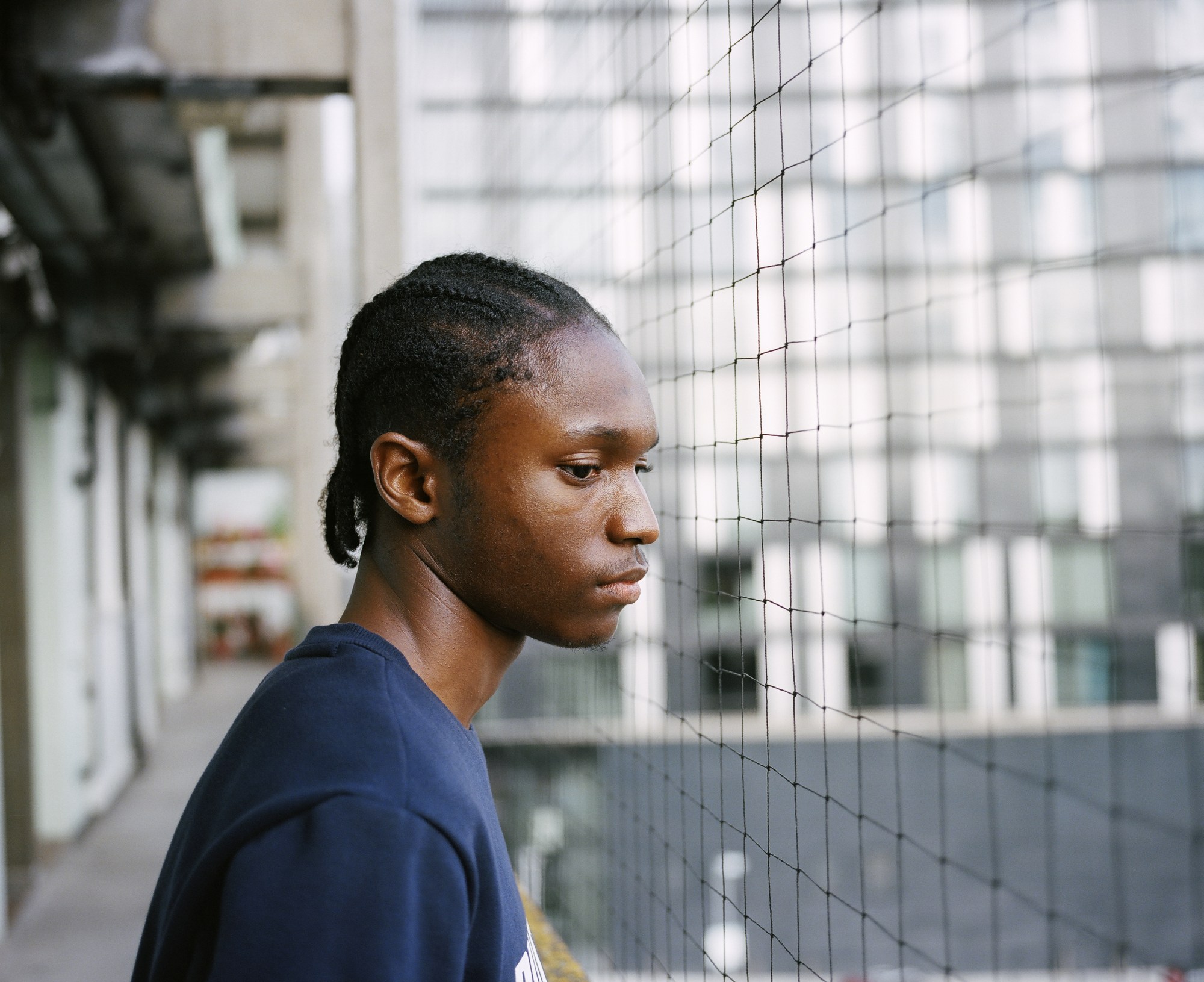
Credits
Photography by Tristan Bejawn
